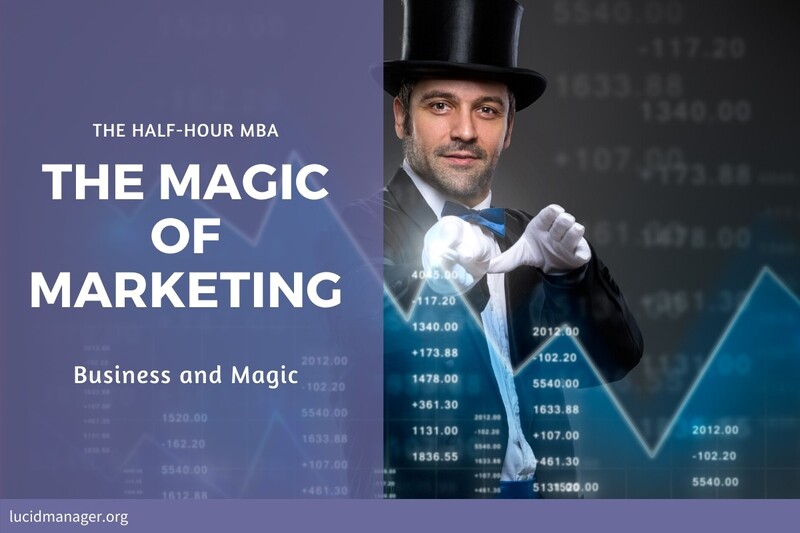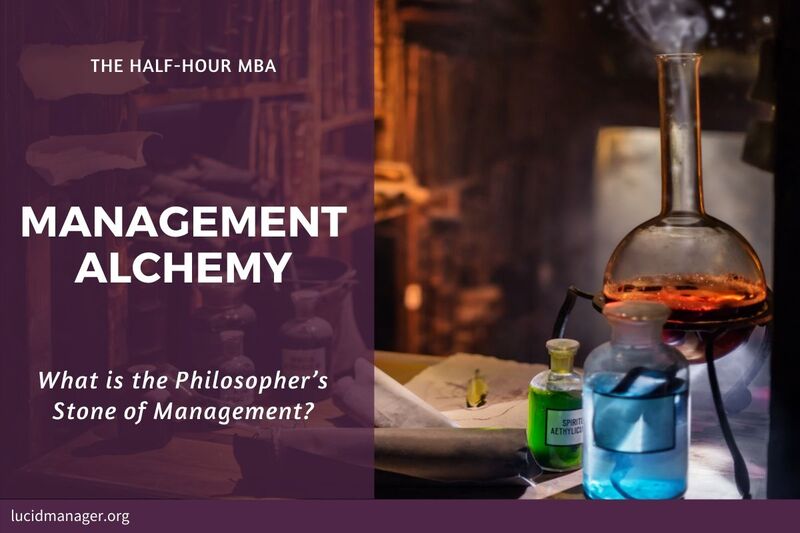
The Magic of Marketing

Peter Prevos |
713 words | 4 minutes
Share this content
What do marketing and conjuring have in common? Some might say that both fields of human endeavour use deception to reach their objectives. Marketers promise a world in which consumers can be beautiful and live the life of the rich and famous. Magicians deceive by presenting a world in which spectators are asked to believe that the laws of nature can be suspended.
Marketers and magicians have, however, more in common than the creation of impossible worlds of universal beauty and magic. There are in fact four areas where magic shows and marketing overlap. I got this insight when watching Australian magician Simon Coronel and his show Manipulations.
Magic Techniques in Marketing
Special techniques
Firstly, to be able to create the illusion of perfect or enchanted worlds, both marketers and conjurers need to use special techniques, hidden from consumers and spectators. Magicians spend many hours developing manual dexterity to create the illusion of magic. Marketers use special techniques to, for example, create the illusion that food looks fresh, even after ours in the spotlight of a photo studio.
Perception Psychology
The use of perception psychology is the second correspondence. Most stage illusions are, just like advertisements, based on the fact that our mind makes inferences based on perceptual clues. We are led to believe that beautiful girls can be cut in half and restored just like we are led to believe that using the right deodorant will make you more attractive.
Attention Management
Penultimate, both marketers and magicians, use attention management. These are psychological tools to ensure that consumers remember advertisements or that spectators only looks at the narrative aspects of the performance. In conjuring, this is mostly called misdirection, which is the technique to ensure viewers do not perceive the mechanical workings of a trick. In marketing, this is important because in a hyper-competitive world attracting attention from consumers is tough.
Entertainment
Finally, presentation and entertainment are essential in both conjuring and marketing. Both are forms of theatre. A well-designed shop, website, supermarket and so on are similar to a stage. The most successful brands in the world understand and excel at this. The most important aspect of a magic performance or a marketing exchange is that the consumer has a positive experience.
The Magic of Marketing and Deception
Theatrical magic is based on deception, using the four principles outlined above. Using deception in marketing is considered unethical while using deception in a magic show is accepted. There exists a social contract between the magician and the audience that deception will be used to entertain them. But also in marketing, there is an implicit understanding by consumers that communication paints a positive picture and does not provide the whole truth. Just like a magician does not reveal the secrets, neither does a marketer point out the negative aspects of their offering.
Selling Magic
The art of retail has one of the strongest links between theatre ad marketing. All retail is deceptive theatre in its core. Not only as a metaphor but as a means to sell more product. One of the most visible connections between magic and marketing are the many brand names with the word magic in it. As I aimlessly walked around a shopping centre, I came across the Magic Mop Set, a mop so good that it will clean the floors like magic.
A search in the American trademark register reveals more than three thousand entries that use the word magic. A company producing herbal nutritional supplements uses Jungle Magic to communicate the idea that their herbs have properties beyond the natural garden herbs. Prepaid telephone cards are marketed as It’s Magic to express their ease of use, and a series of cooking appliances sell under the name of Cook Magic which seems to suggest that cooking with these products becomes an effortless activity.
Using the word magic in the branding of goods and services taps directly into the almost universal human desire for a magical world where mundane activities can be undertaken virtually effortlessly. Marketing, just like a magic show, delivers the promise of a world where the bonds of the laws of nature have been broken.
Buying magical products taps into a sincere desire for a world where we control reality, instead of being controlled by it.
Share this content


